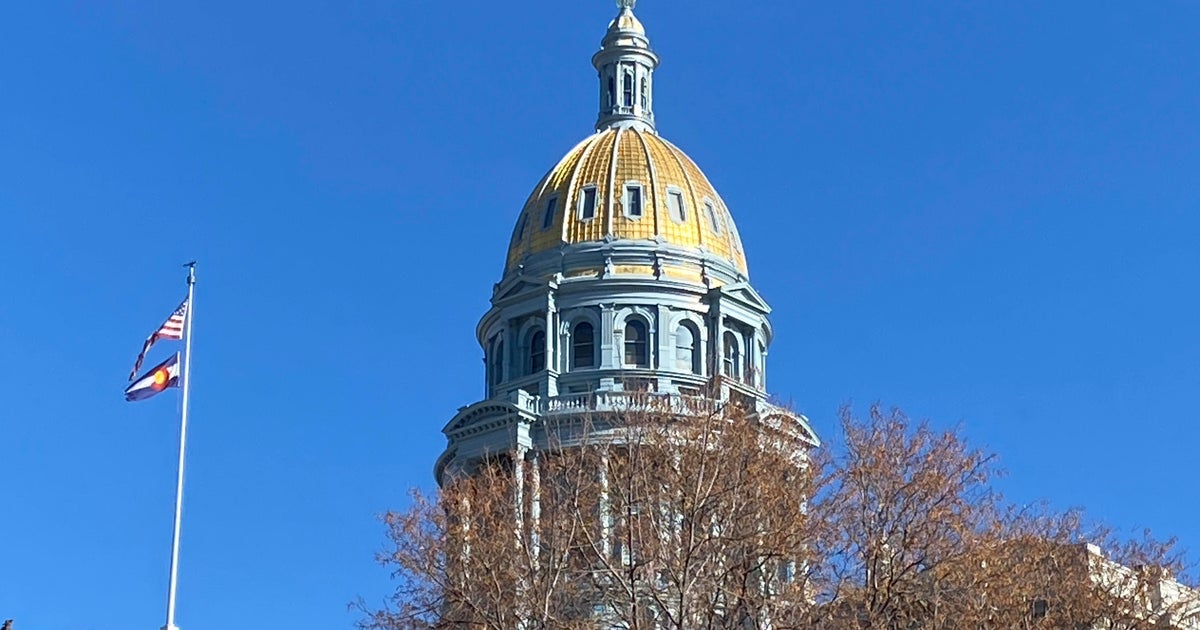Reports detail loss and seek restoration for Native Americans in Colorado
A group of American Indian leaders in Colorado began to organize three years ago to study the history of Native Americans in our state. Their work is called the Truth, Restoration and Education Commission.
Rick Williams, who is Oglala Lakota and Cheyenne, is President of People of the Sacred Land, the nonprofit that led the effort.
Williams recalls the work to fundraise and hire researchers to pore over maps and historical records, "We picked 1850 as a year and we used only those tribes who had treaties and gave up land in Colorado."
The result is a series of recommendations, including a proposal to enact a fee on future real estate sales in Colorado to raise $80 million annually to distribute to Tribes.
"We would like to see the state of Colorado and the federal government own their responsibility for restoring justice to Indian people in Colorado," said Williams. "It isn't doing land acknowledgments. It's about restoration. It's about restoring land. It's about helping us protect sacred sites. It's about trying to find ways to maybe bring these people home."
Williams says large swaths of land in Colorado were taken by the U.S. government without Tribes formally ceding them.
As settlers moved west, land was granted to homesteaders, institutions like Colorado State University, and the railroads.
The researchers say land illegally taken from Tribal Nations in Colorado today would be worth more than a trillion dollars.
"It was the intent of the United States government to erase us, the Indian problem, and they had every intention of trying to do everything they could to eliminate us," said Williams.
He envisions an embassy to welcome Native people home to Colorado. And the building of an American Indian cultural history center.
He said, "We want private landowners to know that we're not going to disturb their ownership rights. Our people went through that they've been alienated from their land for 150 years, and they don't want that to happen to anybody."
Williams says there is plenty of land in the state available for restoration. And he adds that if Indians are ever to see any justice, they'll have to rely on the goodness of people.
"It's absolutely amazing that we're still alive, that we still exist, that we still have a presence because the creator must have been watching out for us and we're supposed to be here," added Williams.
One of the recommendations of the commission was for CSU to return "19,000 acres of land of the original land grant to those Tribal Nations that it was illegally taken from."
CSU sent CBS Colorado the following statement:
"CSU is focused on building relationships with tribal nations, partnering with tribal leadership, developing and supporting programs and initiatives, and addressing university Native American issues.
Examples of ongoing programs and initiatives include:
- In 2011, CSU created the Native American Legacy Award to provide in-state tuition to qualified out-of-state Native students. Since its inception in 2011, NALA has benefitted more than 400 CSU Native students.
- The Native American Cultural Center collaborates with campus partners to ensure a successful educational experience for students by providing support and services. Established in 1979, the office embraces and encourages a supportive environment based on the traditions and cultures of Native American peoples.
- Patrese Atine joined CSU on March 1, 2023, as its first Assistant Vice President for Indigenous and Native American Affairs. AVP Atine reports directly to the President and leads CSU outreach to Tribal communities, works with the CSU community on Native and indigenous issues on campus, and partners with Tribal leaders to increase student engagement and retention.
- The Native American Advisory Council to the President was established in 2018 to provide expertise and guidance to university leadership in designing strategies and promoting activities that support and address priorities for Native students and employees at CSU.
Under state law, the Colorado State Land Board manages CSU lands. Some of the lands granted to CSU generate income, and a CSU System Board of Governors policy instructs a portion of that revenue from the endowment land income fund is used for the benefit of Native American students, faculty and staff."
Williams said there should be greater accountability about the CSU lands endowment, "There never has been a public hearing about this issue and there should be for greater accountability…This issue goes beyond the land granted by the Morrill Act of 1862. What about the unceded land? How about a full accounting of the money generated each year? How come is there no input from the Tribes whose land was taken? What about the current land, shouldn't that be returned? What about the oil and gas revenue?"
The office of Governor Polis said through a spokesman that it's received the TREC reports and is reviewing them.
Read the full TREC reports here: https://peopleofthesacredland.org/






